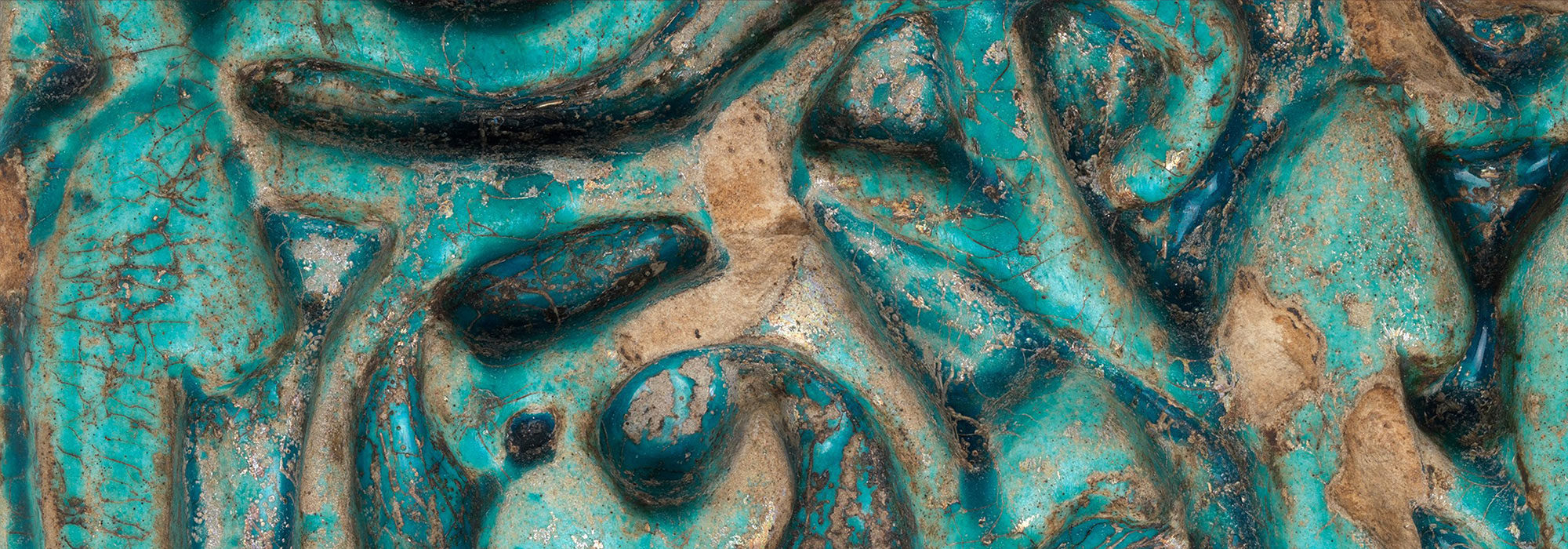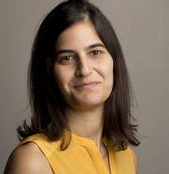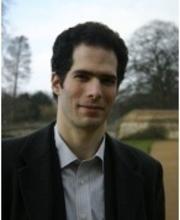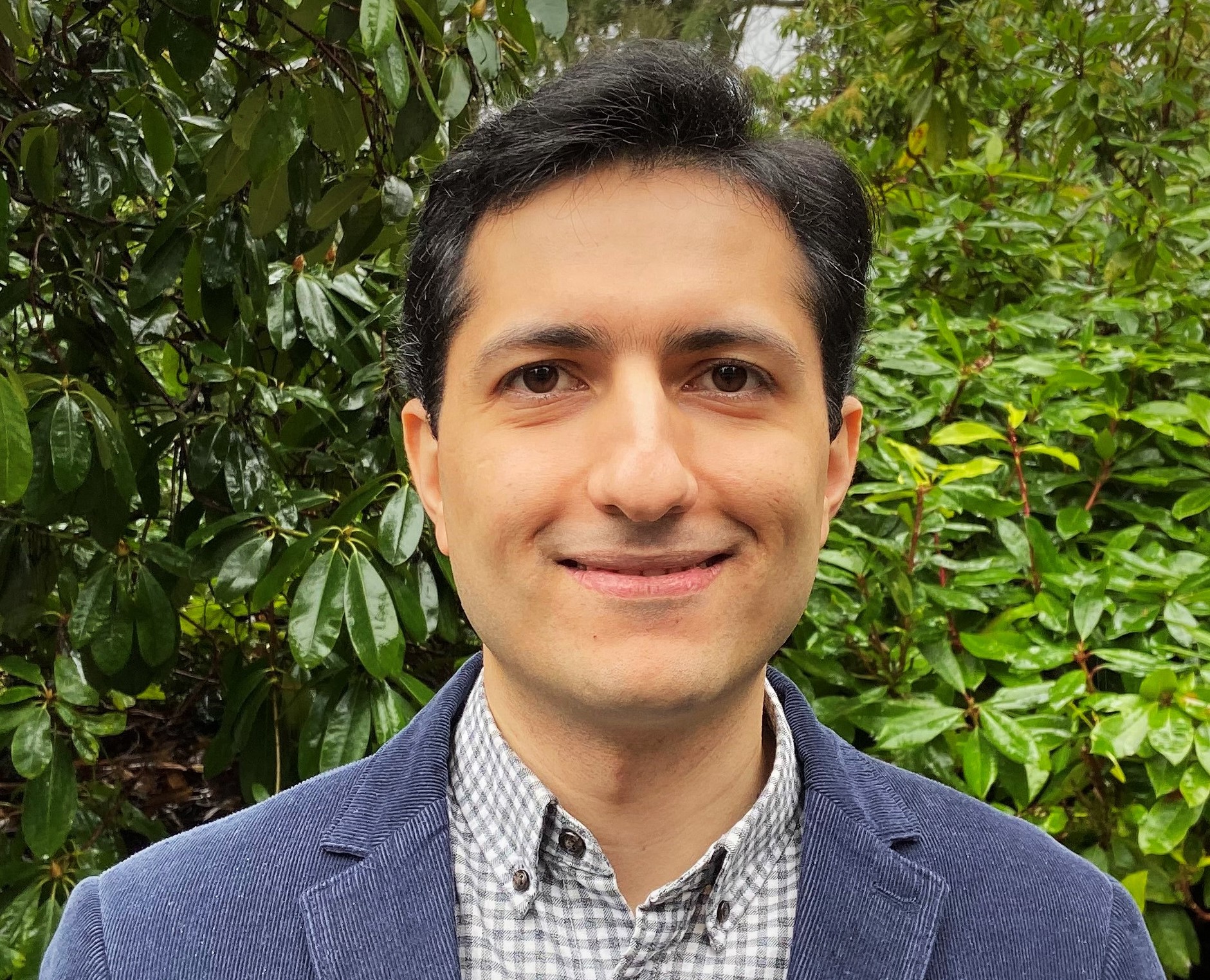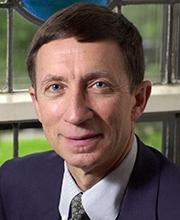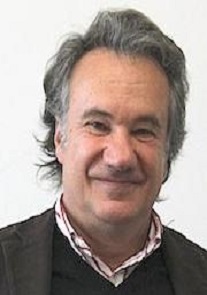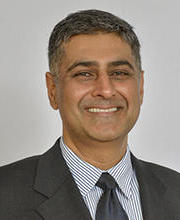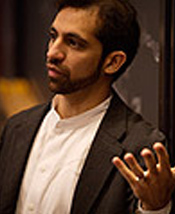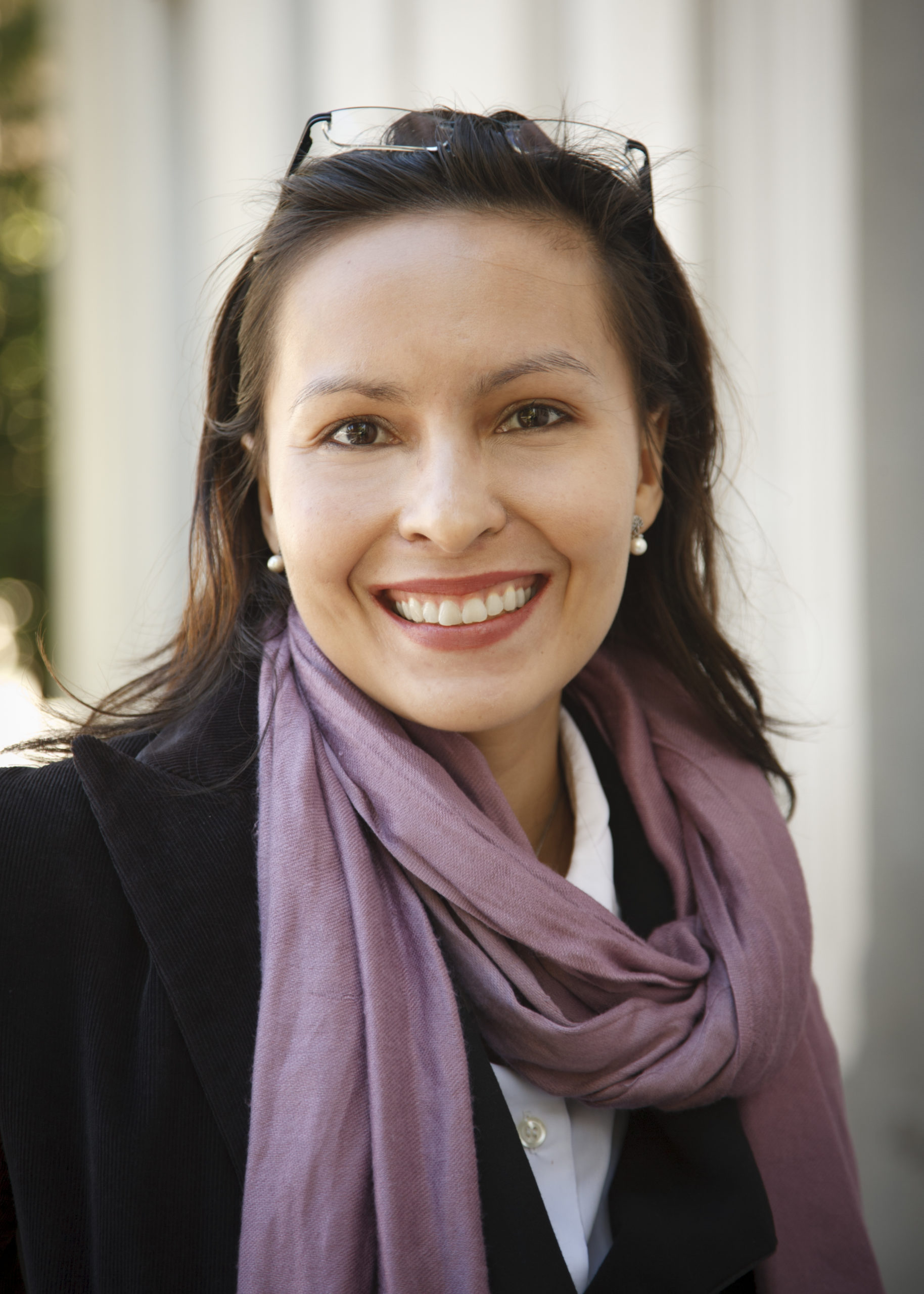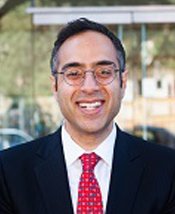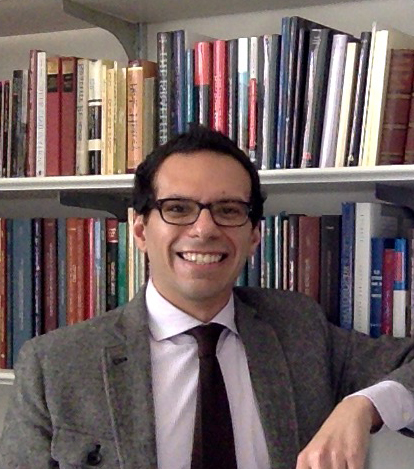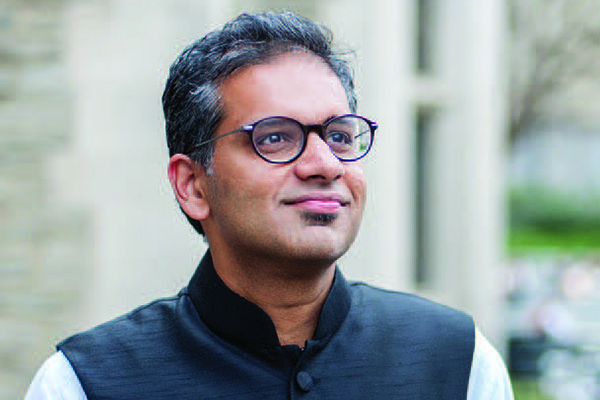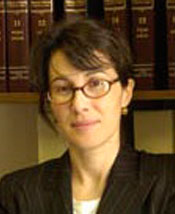Faculty Affiliates

Rosie Bsheer is an historian of the modern Middle East and Assistant Professor of History at Harvard University. She comes to Harvard University from Yale University, where she was Assistant Professor of History (2014–2018). She is the recipient of the Poorvu Family Award for Interdisciplinary Teaching at Yale University (2017) and Yale College’s Sarai Ribicoff ‘75 Award for the Encouragement of Teaching (2018).
Bsheer’s work has been supported by the Mellon Foundation, the American Council of Learned Societies (ACLS), the Social Science Research Council (SSRC), the Whiting Foundation, and the Institute for Religion, Culture, and Public Life. Her teaching and research interests center on Arab intellectual and social movements, petro-capitalism and state formation, and the production of historical knowledge and commemorative spaces.
She is the author of Archive Wars: The Politics of History in Saudi Arabia (Stanford University Press, October 2020). he is Associate Producer of the 2007 Oscar-nominated film& My Country, My Country, Co-Editor of Jadaliyya E-zine, and Associate Editor of Tadween Publishing.
She received her Ph.D. in History from Columbia University (2014).

Khaled El-Rouayheb is the James Richard Jewett Professor of Islamic Intellectual History and chair of the Near Eastern Languages & Civilizations department. His research interests include: the intellectual and cultural history of the Arabic-Islamic world in the Mamluk and early-Ottoman periods (1200-1800); the history of Arabic logic; Islamic theology and philosophy.
His publications include three monographs: Before Homosexuality in the Arabic-Islamic World, 1500-1800 (University of Chicago Press, 2005), Relational Syllogisms & the History of Arabic Logic, 900-1900 (Brill, 2010), and Islamic Intellectual History in the Seventeenth Century (Cambridge University Press, 2015). He has also prepared an edition of Kashf al-asrar ‘an ghawamid al-afkar, a summa of logic by Afdal al-Din al-Khunaji (d.1248) (Iranian Institute for Philosophy, 2010). He is the co-editor (along with Sabine Schmidtke of the Institute of Advanced Studies, Princeton) of The Oxford Handbook of Islamic Philosophy (2016).
He holds a BA in Philosophy from the University of Copenhagen (Denmark), a MA in Middle Eastern History from the American University of Beirut (Lebanon), and a PhD (2003) from the Faculty of Oriental Studies, University of Cambridge (United Kingdom).

Mohsen Goudarzi is Assistant Professor of Islamic Studies at the Harvard Divinity School. A scholar of the Qur'an and early Islamic history, he has published on the Qur'an's theological and legal dimensions, its relationship to the Bible and post-biblical literature, its reception in Muslim exegesis, and its textual genesis. His current projects include an article that rethinks the Qur’an’s legal philosophy and a monograph that explores the Islamic scripture’s historical vision.
Goudarzi obtained his PhD from Harvard's Committee on the Study of Religion in 2018, after which he taught as Assistant Professor at the University of Minnesota (Twin Cities) for three years, before joining the Harvard Divinity School in July 2021.

William A. Graham is Harvard University Distinguished Service Professor, and Murray A. Albertson Professor of Middle Eastern Studies (Faculty of Arts and Sciences). Graham served as Dean of Harvard Divinity School from 2002 to 2012, when he stepped down to return to research and teaching. His scholarly work has focused on early Islamic religious history and textual traditions (Qur’an and Hadith), and on topics in the global history of religion.
His book Divine Word and Prophetic Word in Early Islam was awarded the American Council of Learned Societies History of Religions Prize in 1978. He is the author of Beyond the Written Word: Oral Aspects of Scripture in the History of Religion (1987) and Islamic and Comparative Religious Studies(2010). He has co-authored three books and is also the author of numerous articles and reviews.
He is a summa graduate of the University of North Carolina at Chapel Hill and holds honorary doctorates from UNC and Lehigh University.

Cemal Kafadar is the Vehbi Koç Professor of Turkish Studies at Harvard University. Prof. Kafadar is interested in the social and cultural history of the Middle East and southeastern Europe in the late medieval/early modern era. He teaches courses on Ottoman history, urban space, travel, popular culture, history and cinema.
His latest publications include “How Dark is the History of the Night, How Black the Story of Coffee, How Bitter the Tale of Love: the Changing Measure of Leisure and Pleasure in Early Modern Istanbul” and “Evliya Celebi in Dalmatia: an Ottoman Traveler’s Encounters with the Arts of the Franks.”
Kafadar graduated from Robert College, then Hamilton College, and received his PhD from the McGill University Institute of Islamic Studies in 1987.

Dr. Keshavjee is a professor in the Department of Global Health and Social Medicine and Department of Medicine at Harvard Medical School. He also serves as a physician in the Division of Global Health Equity at the Brigham and Women’s Hospital. He conducted doctoral research in medical anthropology at Harvard University on the health transition in post-Soviet Tajikistan. He has worked with the Division of Global Health Equity and Partners In Health on the implementation of a multidrug-resistant tuberculosis (MDR-TB) treatment program in Tomsk, Russia. Between 2000 and 2008, Dr. Keshavjee set up a program to treat patients co-infected with HIV and MDR-TB in Lesotho. Between 2007 and 2010, Dr. Keshavjee served as the chair of the Green Light Committee Initiative, a Stop TB Partnership/WHO initiative which helps countries gain access to high-quality second-line anti-TB drugs so they can provide treatment for people with MDR-TB in line with the WHO guidelines, the latest scientific evidence, and country experiences. He is currently a member of the Stop TB Partnership’s MDR-TB Working Group Core Group.
Dr. Keshavjee received his ScM from the Harvard School of Public Health in 1993, his PhD in Anthropology and Middle Eastern Studies from Harvard University in 1998, and his MD from Stanford University in 2001. He completed his clinician-scientist residency in Internal Medicine and a fellowship in Social Medicine at Brigham and Women’s Hospital in 2005. In addition to his appointment with the Department of Global Health and Social Medicine, Dr. Keshavjee serves on the faculty of the Division of Global Health Equity (DGHE) at Brigham and Women’s Hospital (BWH). He is also an attending physician in the Department of Medicine at BWH. He is an affiliate and Steering Committee member at the Harvard Center for Middle Eastern Studies.

Asim Ijaz Khwaja is the Sumitomo-Foundation for Advanced Studies on International Development Professor of International Finance and Development at the Harvard Kennedy School, and Co-Director of Evidence for Policy Design (EPoD). He was selected as a Carnegie Scholar in 2009 to pursue research on how religious institutions impact individual beliefs.
His areas of interest include economic development, finance, education, political economy, institutions, and contract theory/mechanism design. His research combines extensive fieldwork, rigorous empirical analysis, and microeconomic theory to answer questions that are motivated by and engage with policy. His recent work ranges from understanding market failures in emerging financial markets to examining the private education market in low-income countries.
Khwaja received BS degrees in economics and in mathematics with computer science from MIT and a PhD in economics from Harvard.

Annette Damayanti Lienau joined Harvard’s Department of Comparative Literature as an Assistant Professor in 2018. Her core research uses the legacy of the Arabic language as a lens for transregional studies of post-colonial writing, offering an alternative approach to the often binary (colonial/post-colonial) constructions used in more isolated studies of national literary histories.
Lienau’s first book, Sacred Language, Vernacular Difference: Global Arabic and Counter-Imperial Asian and African Literatures (under review with Princeton University Press) traces how Arabic—as an inter-ethnic language— evolved as a counter-imperial medium and symbol, and became intertwined with debates about cultural parity and racial equality in the nineteenth and twentieth centuries. The book moves historically from colonial documents to counter-imperial writing and has the distinction of working inter-imperially, encompassing original work on texts and languages from the former territories of French West Africa, Egypt under British occupation, and the Dutch East Indies.
Her book also considers the extent to which a common linguistic situation—the historical use of the Arabic script for vernacular languages and the preservation of Arabic as a religious medium among diverse communities—influenced the evolution of literary and textual standards in three national cases with distinct imperial legacies: Senegal, controlled by the French, Indonesia by the Dutch, and Egypt by the Ottoman Empire and subsequently by the British Empire. It thereby examines how Arabic impacted the formation of emerging national literatures in ways that contrast with vernacular European literatures evolving from a Latin ecumenical context. Her book equally traces how regions in West Africa and Southeast Asia, once culturally unified through the common use of the Arabic script, were later divided by the colonial introduction of European languages and romanized print.
For a subsequent project, Lienau will be exploring materials on the cultural memory and literary traces of mass uprisings in Indonesia (1998) and Egypt (2011), assessing and comparing these major historical transitions alongside their joint implications for post-colonial studies towards the turn of the twenty first century. She will also be working towards a longer-term project on counter-imperial writing and transregional histories of sabotage, provisionally entitled From Sabotage to (Counter)-Revolution: Thresholds of “Liberation” within the Global South.
Lienau completed her Ph.D. in Comparative Literature from Yale University (2011) and received a Certificate of Arabic Studies from the Center for Arabic Studies Abroad (American University in Cairo, 2006-2007). She also received an M.A. in French Studies from Middlebury College in Paris (2003), through which she enrolled at the Sorbonne Nouvelle (Université de Paris III). In addition to working in Arabic and French, Lienau is a heritage speaker of Indonesian. She has also pursued training in Wolof at the Centre de Linguistique Appliquée de Dakar (Université Cheikh Anta Diop).

Tarek Masoud is the Sultan of Oman Associate Professor of International Relations at Harvard University’s John F. Kennedy School of Government. He is a 2009 Carnegie Scholar, a term member of the Council on Foreign Relations, a member of the editorial board of the Journal of Democracy, and the recipient of grants from the National Science Foundation and the Paul and Daisy Soros foundation, among others. His research focuses on the role of religion in the Muslim world’s political development.
He is the author of Counting Islam: Religion, Class, and Elections in Egypt (Cambridge University Press, 2014), the co-author of The Arab Spring: Pathways of Repression and Reform (Oxford University Press, 2015), as well as of several articles and book chapters.
He holds an AB from Brown and a PhD from Yale, both in political science.

Professor Shady Nasser is a Program in Islamic Law Faculty Affiliate. He teaches Arabic literature and Islamic Civilizations courses. His previous posting was as a University Lecturer in Classical Arabic studies at the University of Cambridge (UK), in the Faculty of Asian and Middle Eastern Studies. From 2009-2012 he was a senior lector of Arabic and the coordinator of the Arabic language program at Yale University. In 2013, he was appointed University Lecturer in Classical Arabic studies at the University of Cambridge (UK).
Nasser's research interest is Qur’anic studies in general with particular focus on the history of the transmission of the text, its language, and its reception among the early Muslim community. Pre-Islamic and early Islamic poetry, Akhbār Literature, and Ḥadith transmission, are also among Nasser’s research interests. His publications include The Transmission of the Variant Readings of the Qur’ān: The problem of tawātur and the emergence of shawādhdh (Leiden: Brill, 2012).
Shady started his PhD at Harvard University in Arabic and Islamic studies under the supervision of Wolfhart Heinrichs. He completed his PhD in 2011.

Gabriel Pizzorno is a lecturer in the Department of History at Harvard University and the faculty chair of Harvard’s Digital Scholarship Support Group. His research spans a broad range of subjects, from imperialism and power centralization in the ancient Near East to aspects of personhood and dehumanization in concentration camps during the Holocaust. These diverse research interests are joined by two common threads: a focus on material culture as historical source, and the use of advanced digital tools to enable the exploration and interrogation of large and complex datasets. Pizzorno’s work attempts to bridge the gap between the detailed enquiry necessary to comprehend small-scale phenomena and the overarching syntheses required to place them in their proper historical context.
Before joining the History Department at Harvard in 2014, Pizzorno received a PhD in Art and Archaeology of the Mediterranean World from the University of Pennsylvania.


Malika Zeghal is the Prince Alwaleed Bin Talal Professor in contemporary Islamic thought and life at Harvard and studies religion through the lens of Islam and power. She is particularly interested in Islamist movements and in the institutionalization of Islam in the Muslim world, with special focus on the Middle East and North Africa in the postcolonial period and on Muslim diasporas in North America and Western Europe. She has more general interests in the circulation and role of religious ideologies in situations of conflict and/or dialogue.
She has published a study of central religious institutions in Egypt, Gardiens de l’Islam, (1996), and a volume on Islam and politics in Morocco, Islamism in Morocco: Religion, Authoritarianism, and Electoral Politics (2008), which has won the French Voices-Pen American Center Award. She is currently working on a book on states, secularity, and Islam in the contemporary Arab world. An alumna of the Ecole Normale Supérieure de la Rue d'Ulm (Paris, France),
Malika Zeghal holds a PhD in Political Science from the Institut d'Etudes Politiques de Paris (1994).
